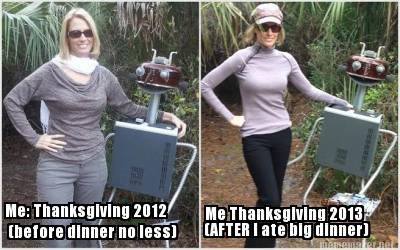On Tuesday, Monsanto suffered a major setback when a federal judge in San Francisco unsealed documents that call into question the research practices and the safety of RoundUp, the world’s most-produced weedkiller. In what comes as no shock to many of us, the documents countered industry-funded research which has long asserted the product was safe.
Some of the court documents included internal company emails and email traffic between Monsanto and federal regulators. The records suggested that Monsanto had “ghostwritten research that was later attributed to academics and indicated that a senior official at the Environmental Protection Agency had worked to quash a review of Roundup’s main ingredient, glyphosate, that was to have been conducted by the United States Department of Health and Human Services,” reports the New York Times.
- An email written by William F. Heydens, a Monsanto executive, giving his colleagues the green light to ghostwrite glyphosate research and then hire academics to put their names on the papers.
- Within the EPA, there was not only internal disagreement regarding the agency’s own safety assessment of Roundup, but also foul play. In one email from 2015, Dan Jenkins, a Monsanto executive, said that Jess Rowland, an EPA official who was heading the cancer risk evaluation of Roundup, referring to an agency review, had told him over the phone, “If I can kill this, I should get a medal.” The review never happened.
- And court filings earlier this month saw on alleged collusion between Monsanto and the EPA; a letter written in 2013 by Marion Copley, in which the late EPA senior toxicologist asserts, “It is essentially certain that glyphosate causes cancer,” contradicting the agency’s 1991 ruling that the chemical is not a human carcinogen. In that letter, Copley also accused Rowland of unethical behavior: “For once in your life, listen to me and don’t play your political conniving games with the science to favor the registrants….For once do the right thing and don’t make decisions based on how it affects your bonus.”
But Monsanto isn’t just on the defense in California. The vast collection of cases being overseen by Judge Chhabria will soon have a global dimension. And Chhabria threatened Monsanto with sanctions if they continue to hide relevant documents from the public, “I have a problem with Monsanto, because… it is insisting that stuff be filed under seal that should not be filed under seal. When documents are relevant to the litigation, they shouldn’t be under seal, even… if Monsanto doesn’t like what they say.”
Even with all the legal setbacks, hundreds of lawsuits just in the U.S., Monsanto still claims that glyphosate is relatively safe and has vowed to continue its fight in the courts. Samuel Murphey, a Monsanto spokesman called the ruling in California (which allows glyphosate to be listed as “carcinogenic”) as “flawed and baseless.” He claims it violates the state and U.S. Constitution and promised that Monsanto would continue to challenge the “unfounded proposed ruling” on the basis of science. We shall see.
Regardless of the science surrounding glyphosate, increased public debate about the chemical, as well as increased transparency in regard to its regulation, sale, and marketing will only benefit consumers, farmers, wildlife, and the environment.
Source: New York Times












